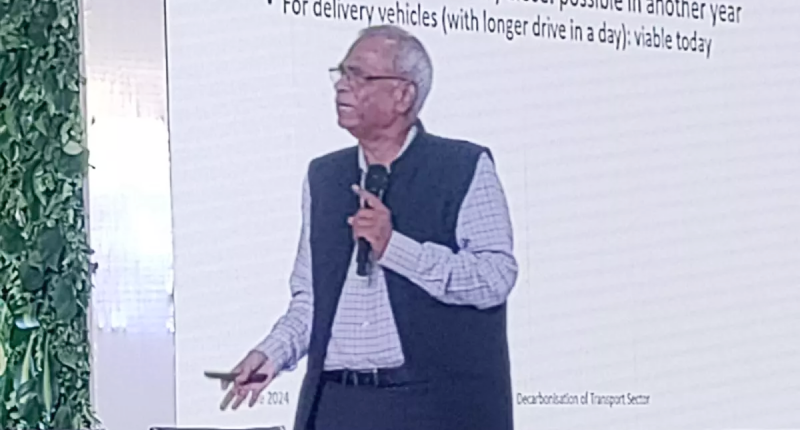June 29, 2024: Prof Ashok Jhunjhunwala, who until recently taught at IIT-Madras and is currently the Director of IIT Madras Research Park, foresees the death of internal combustion engines, which would make way for electric vehicles. “IC engines are on their last gasp,” he said, speaking at India EV 2024, an exhibition-cum-conference on the Indian EV industry, organised by Entrepreneur India.
Jhunjhunwala, a big advocate of EVs, renewable energy and small nuclear reactors, backed his assertion with five advantages that EVs have over petrol vehicles. First, the purchase cost of EVs is falling rapidly. Jhunjhunwala foresees EV costs dropping below that of petrol vehicles in the days to come.
Second, fuel costs of EVs are a tenth of that of petrol vehicles; the vehicles also require far less maintenance. Third, ‘range anxiety’ associated with EVs is misplaced, he says, because 95 percent of their usage is within a 100 km range. For longer ranges, fast charging could be used. Fourth, it is not true that EVs (along with solar) generate a lot of waste, because over 90 per cent of the waste can be recycled. Finally, EVs have fifty times fewer moving parts than petrol engines. EVs are also four times more efficient than petrol vehicles.
“In 7-8 years, there will be no new IC vehicles on the roads,” he said. With the possible exception of long-haul vehicles, travelling over 500km or so, all vehicles could easily become battery-powered.
Later, answering a question, Jhunjhunwala said that concerns over the safety of EVs were ill- founded. He had himself been driving an electric vehicle for about eight years without any problem.
Frost & Sulliavan, a consultancy, released a report titled ‘An Overview of Indian Electric Vehicle Market: Trends and Future Outlook’ at the event. The report notes that around 123,000 electric passenger cars are likely to be sold in India in 2024 (calendar), compared with 83,000 in
2023 — representing 48 per cent growth. The number would increase to anywhere between 700,000 and 1.1 million by 2030. “OEMs are aiming to localise the production of 60-70 per cent of EV components by 2030, including critical components, apart from batteries,” the report says.
Publication: The Hindu Businessline
Read the article at: https://www.thehindubusinessline.com/news/ic-engines-on-their-last-gasp-says-ashok-jhunjhunwala/article68348230.ece
![]()


